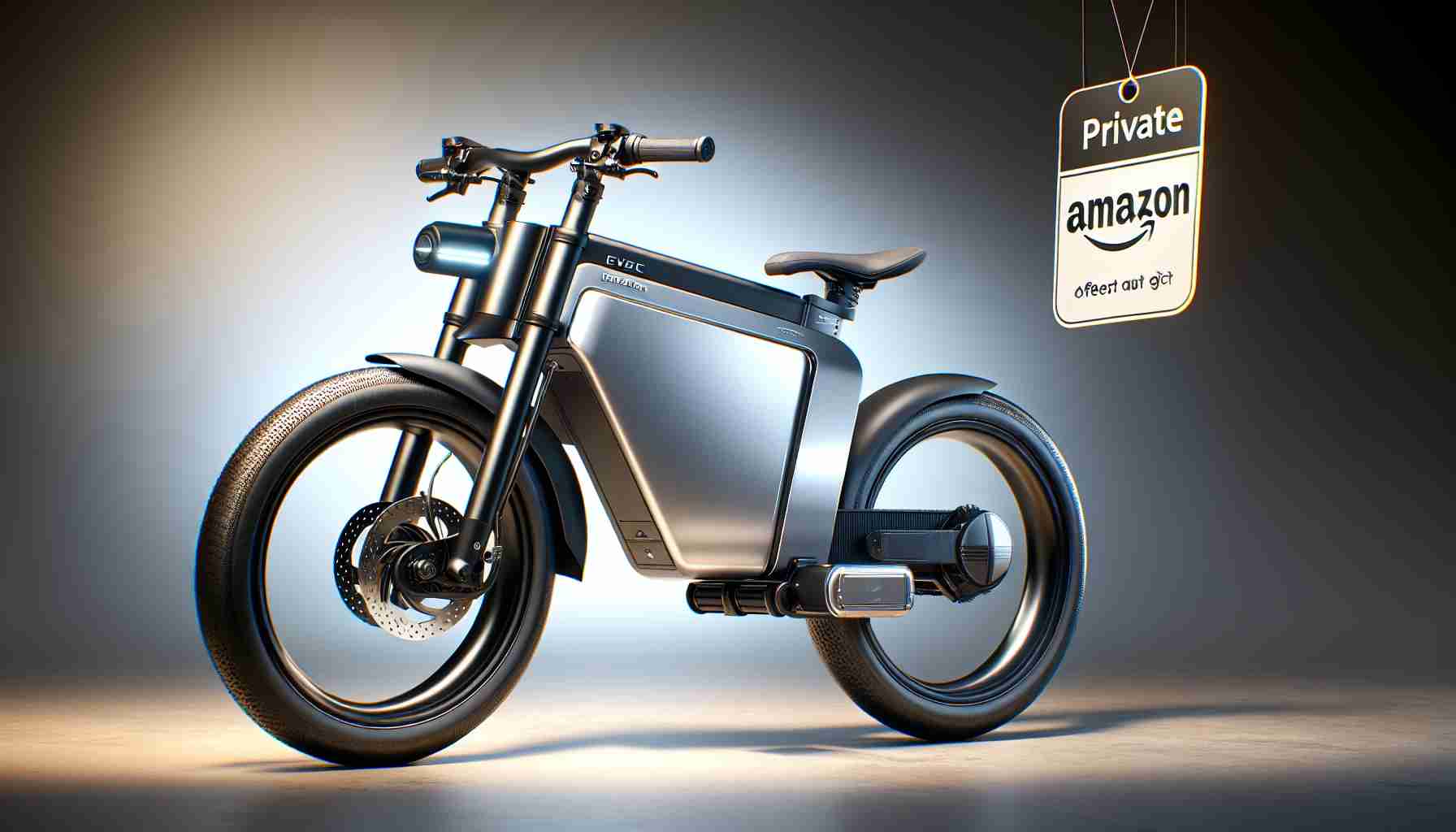تم إصدار تحذير مهم مؤخرًا من قبل اللجنة الأمنية للمنتجات الاستهلاكية (CPSC) بشأن المخاطر المحتملة المرتبطة ببطاريات الدراجات الكهربائية من Unit Pack Power (UPP). تم اكتشاف أن هذه البطاريات ، والتي تحتوي على خلايا الليثيوم أيون ، قد تشكل مخاطر اندلاع الحريق أو الحروق للمستخدمين.
لضمان سلامتك ، من الضروري تجنب استخدام بطاريات UPP ، بشكلٍ محدد طرز U004 و U004-1. يؤكد CPSC على عدم حصولهم على شهادة من مختبر معتمد وفقًا لمعايير السلامة ذات الصلة لمختبرات Underwriters Laboratories (UL). يعني هذا أن التدابير اللازمة للسلامة والضمانات لم تتم تنفيذها.
تم تصنيع بطاريات UPP المعنية من قبل شركة Shenzhen Unit Pack Power Technology Co. Ltd.، المعروفة أيضًا باسم Unit Pack Power أو UPP. كشفت التقارير المرعبة أن الشركة لم تجرِ إجراءً تصحيحيًا مقبولًا على الرغم من ضغوط CPSC. هذه الإهمال يعرض المستهلكين لمخاطر محتملة ويعزز أهمية اختيار المنتجات من الشركات المصنعة الرصينة التي تلتزم بمعايير السلامة.
تحديد هذه البطاريات الخطيرة أمر حرج. فهي سهلة التعرف بسبب شكلها المثلث المميز وتحتوي على إما العلامة “U004 BATTERY” أو “UPPBATTERY” على الجانب. بالإضافة إلى ذلك ، يمكن العثور على رقم الطراز على ملصق منفصل في الخلف من البطارية.
تم بيع بطاريات UPP هذه على مجموعة متنوعة من المنصات ، بما في ذلك AliExpress و Amazon و eBay و Walmart. كانت متاحة للشراء بين عامي 2018 وأبريل 2024 ، بأسعار تتراوح بين 280 دولارًا و 730 دولارًا. فمن الأساسي لأصحاب هذه البطاريات اتباع اللوائح المحلية والولائية عند التخلص منها. تنصح CPSC بشدة بإستبدالها ببطاريات تمت اعتمادها من قبل المختبرات المعتمدة وتفي بمعايير السلامة.
عندما يتعلق الأمر ببطاريات الليثيوم أيون ، من الضروري الأولوية للسلامة واختيار المنتجات من الشركات المصنعة الموثوقة. بواسطة أن نكون مستهلكين يبقون على أهبة الاستعداد ومطلعين ، يمكننا حماية أنفسنا من المخاطر المحتملة المرتبطة بالبطاريات المعيبة وضمان تجربة آمنة وممتعة أثناء استخدام الدراجات الكهربائية.
قد شهدت صناعة الدراجات الكهربائية نموًا سريعًا في السنوات الأخيرة ، حيث يختار المزيد والمزيد من المستهلكين الدراجات الكهربائية كوسيلة مريحة وصديقة للبيئة للنقل. ووفقًا لتوقعات السوق ، من المتوقع أن يصل سوق الدراجات الكهربائية العالمية إلى قيمة 38.6 مليار دولار بحلول عام 2025 ، بمعدل نمو سنوي مركب (CAGR) قدره 6.1٪ خلال فترة التوقعات. هذا الطلب المتزايد على الدراجات الكهربائية أدى أيضًا إلى زيادة إنتاج وبيع البطاريات الخاصة بها.
ومع ذلك ، مع التحذير الأخير الصادر عن اللجنة الأمنية للمنتجات الاستهلاكية (CPSC) بشأن المخاطر المحتملة المرتبطة ببطاريات الدراجات الكهربائية من شركة Unit Pack Power (UPP) ، من الضروري معالجة المشاكل المتعلقة بالصناعة والمنتجات المطروحة للبيع. يسلط التحذير من CPSC الضوء على مخاطر اشتعال الحريق والحروق التي قد يواجهها المستخدمون عند استخدام بطاريات UPP ، بشكل خاص طرز U004 و U004-1 ، والتي تحتوي على خلايا الليثيوم أيون.
تشير هذه التحذيرات إلى الحاجة إلى تشديد اللوائح ومعايير السلامة داخل الصناعة. يشكل عدم الحصول على شهادة من معمل معتمد وفقًا لمعايير السلامة ذات الصلة لمختبرات Underwriters Laboratories (UL) قلقًا كبيرًا ، حيث يعني أن التدابير اللازمة للسلامة والضمانات لم تتم تنفيذها. يثير هذا القضية تساؤلات حول ممارسات التصنيع ومراقبة الجودة للشركات التي تعمل في هذه الصناعة.
تم تصنيع بطاريات UPP المعنية من قبل شركة Shenzhen Unit Pack Power Technology Co. Ltd.، وهي شركة لم تقم بأي استدعاء قابل للقبول على الرغم من حث CPSC على ذلك. هذا الإهمال لا يضع المستهلكين فقط في خطر محتمل ، ولكنه يثير أيضًا شكوكًا حول المساءلة والمسؤولية للمصنعين في صناعة بطاريات الدراجات الكهربائية. فهو يبرز أهمية اختيار المنتجات من الشركات المصنعة الرصينة التي تلتزم بمعايير السلامة وإجراء استدعاءات مواعيدها عند الضرورة.
تحديد هذه البطاريات الخطيرة أمر حاسم لضمان سلامة المستهلك. الشكل المثلث المميز لبطاريات UPP ، جنبًا إلى جنب مع العلامات “U004 BATTERY” أو “UPPBATTERY” على الجانب ، يمكن أن يساعد المستخدمين على التعرف على هذه المنتجات المحتملة للخطر. بالإضافة إلى ذلك ، يمكن العثور على رقم الطراز على ملصق منفصل في الخلف من البطارية ، مما يزود المزيد من المعلومات لأغراض التعريف.
تم بيع بطاريات UPP هذه على منصات مختلفة ، بما في ذلك AliExpress و Amazon و eBay و Walmart. تشير ذلك إلى وجود وتوزيع واسع لهذه المنتجات المحتملة للخطر ، مما يعرض للشكوك التحكم في الجودة والرقابة التنظيمية في صناعة التجارة الإلكترونية. يجب على المستهلكين أن يكونوا حذرين عند شراء بطاريات الدراجات الكهربائية عبر الإنترنت والتأكد من أنهم يشترون من بائعين موثوق بهم.
نظرًا لهذه المخاوف الأمانية ، فمن الضروري بالغ الأهمية اتباع اللوائح المحلية والولائية عند التخلص من بطاريات UPP. تنصح CPSC بشدة باستبدال هذه البطاريات بتلك التي تم اعتمادها من قبل المختبرات المعتمدة وتفي بمعايير السلامة. يبرز ذلك أهمية عملية التصديق الصارمة وضرورة أن يعطي المستهلكون الأولوية للسلامة عند اختيار بطاريات الليثيوم أيون للدراجات الكهربائية الخاصة بهم.
بقاء مطلعين وكوننا مستهلكين يبقى يحمي أنفسنا من المخاطر المحتملة المرتبطة بالبطاريات المعيبة وضمان تجربة آمنة وممتعة أثناء استخدام الدراجات الكهربائية. من الضروري الاعتماد على الشركات المصنعة الموثوقة واتخاذ قرارات مستنيرة عند شراء بطاريات الدراجات الكهربائية للحد من المخاطر والمخاطر الأمنية المرتبطة بالمنتجات غير القياسية.
لمزيد من المعلومات حول صناعة الدراجات الكهربائية والمخاوف الأمنية ذات الصلة ، يمكنك زيارة الموقع الرسمي لـ CPSC: CPSC.











